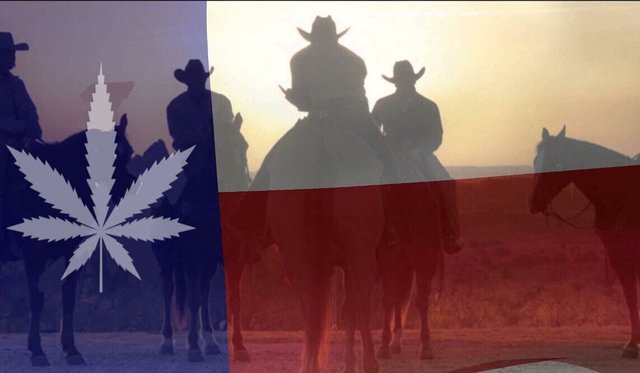Happy Weedsday to all of you!!
As this year is just beginning, I am sitting here reflecting on all of the progress this state has made in cannabis legalization this past year. For instance, one of Texas's biggest uphill battles regarding legalization is no longer in office. GOOD JOB TEXAS AND GOODBYE PETE SESSIONS !! Legalization is inevitable, but it takes educating others. It takes for people to discuss cannabis and for people to share their experiences and how it helps them or someone they know. I know we all know someone! Flood Austin and your Representative with letters of your experiences! They have to take notice!! It is also so important to know what is going on at the political level and be acquainted with Bills that are being presented in Texas Legislation in the upcoming session. Just because Midterm Elections are over doesn't mean that there isn't still work to be done. We have new representation in some areas and they need to know what we want !! If you are interested in how to help get cannabis legal in Texas its important to know what Bills are being presented. The next Texas Legislative session begins on January 8 th 2019..I intend to be there !! Many bills regarding how cannabis is or will be legalized will be presented and start the process through what it takes to make a bill become law. With your help, perhaps we can get some of the good ones to pass into law.
So below is some information on how it happens here for us in Texas!
(Remember: NO referendums or petitions happen in Texas... This is the only way)
(
***A bill starts with an idea that can become a new law.
The idea may come from an individual, a group, a legislator, an agency, or the Governor.
It is written, edited, assigned a number, and introduced into The Texas House or Senate.
The Texas legislature meets every two years, during an odd numbered year, but the Governor can call a special session if needed. During a legislative session, the House or Senate follows a procedure similar to the U.S. process that goes through three steps:
- Committee
- Action
- Gubernatorial Decision
Unlike the U.S. process, the bill does not travel through both chambers of the House and Senate at the same time. However, it is always passed over to the opposite chamber for study. When both chambers have debated, studied and passed it, the bill is revised in a Conference Committee, and the final version is sent to the Governor, who makes a decision.
***This is the process in which a bill travels through the House Of Representatives in Texas :
A House bill draft is introduced to the House by a representative in the House.
The Speaker reads the bill in order, using its assigned number, and refers it to a committee.
The committee studies the bill, holds hearings and creates a printed report. The Calendar committee assigns the report to be read on a specific day. It is read, amended, debated and voted on.
After the third reading, a two-thirds vote majority in the House will pass it, and the amended bill then goes to the Senate.
***And this is the process in which it travels through the Senate.
In the Senate, the Lt. Governor reads the bill and assigns it to a committee. A study and a printed report follows.
The bill is considered on the Senate floor, debated and voted on. After three readings, a two-thirds majority vote passes it in the Senate. If it has been amended, the bill goes back to the House, who agrees with the changes or not. If they do not agree, they ask for a Conference Committee to discuss differences and come up with a final version for the Governor. With an agreed upon version, the bill is "enrolled."
When a bill is enrolled, it is signed by the speaker of the House in the presence of the House. It is signed by the Lt. Governor in presence of the Senate. It is sent to the Governor who signs or refuses to sign, and it becomes a law.
If the Governor vetoes the bill, it does not become a law unless the two-thirds majority vote of House and Senate overrides the veto and passes the bill.
There are ten bills so far being presented. SB90 would expand the TCup bill. HB209 is the medical bill. It says home grow ; less than six plants. These are not companion bills. HB63 - SB156 are companion bills. For penalty reduction; for Less than an ounce a civil penalty of $250. The medical bills are different. The penalty reductions are the same. You can look up all bill numbers here at txlegis.com and read the text of the bill and follow along the process there as well.
It can be a long process for bills and often they do not make it. This is why its so important to educate those who do not know. we have to actively tell people and write them and call them to remind them that this plant stops epileptic seizures, it cures cancers , it helps veterans with depression and PTSD and many others for varying reasons and conditions! Don't they deserve our help ?
<3 I would love to give a special shout out to Karen C Reeves of #TEAMCENTEX for always helping me with keeping track of all the Bills !!! Thank You !!
***sources from: HTTP://shsulibraryguides.org/c.php?g=351551&p=2370494